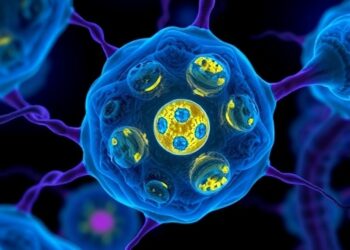In a rigorous medical records study covering tens of thousands of patients, Johns Hopkins Medicine researchers conclude that some patients with preoperative anemia have better outcomes if they get iron infusions before surgery rather than standard red blood cell transfusions.
In a rigorous medical records study covering tens of thousands of patients, Johns Hopkins Medicine researchers conclude that some patients with preoperative anemia have better outcomes if they get iron infusions before surgery rather than standard red blood cell transfusions.
The findings, published July 22 in Anesthesia & Analgesia, contribute to mounting evidence that such iron infusions, which boost the production of a person’s own red blood cells, are better than relying on someone else’s blood.
“Anemia is incredibly common, especially in surgical patients, and until recently the default treatment has been blood transfusions prior to the procedure,” says Steven Frank, M.D., professor of anesthesiology and critical care medicine at the Johns Hopkins University School of Medicine. “However, our retrospective study showed a benefit of iron infusions over preoperative blood transfusions in decreasing morbidity and mortality, increasing hemoglobin and decreasing the need for blood transfusions.”
Iron is a mineral that the human body needs to make hemoglobin, a protein in red blood cells that carries oxygen to organs throughout the body. If there is insufficient iron in a patient’s blood, the person becomes anemic, meaning there are not enough healthy red blood cells to deliver enough oxygen. This is particularly concerning for patients undergoing surgery because there is almost always some amount of blood loss during any procedure.
While blood transfusions work, they also carry risks, including blood clots, hospital-acquired infections, allergic reactions and pulmonary complications. It can be difficult to find a donor match if a patient has certain antibodies or a condition such as sickle cell disease. As a result, physicians have long sought strategies to minimize the use of transfusions.
In the new study, the Johns Hopkins Medicine research team used data from the TriNetX Research Network database, a global network of health care organizations that pool de-identified patient information. The team’s analysis used such information gathered between 2003 and 2023 on 154,358 patients over 18 years old with a diagnosis of iron-deficient anemia prior to surgery.
The data were sorted into groups of patients who were treated with iron preoperatively but not with a blood transfusion, and patients who received a preoperative blood transfusion but no iron infusion. These infusions happened several weeks before a scheduled surgical procedure. Researchers then compared postoperative complication rates including respiratory problems, kidney issues, blood clots, infections and death rates.
From this review, researchers found a 37% reduction in mortality and a 24% reduction in morbidity (complications) in patients who were treated with iron infusions compared with those treated with blood transfusions. This finding means that patients receiving iron infusions may recover more quickly and fully from their surgical procedures without any added complications that may arise from a blood transfusion.
“The Joint Commission and the American Medical Association named blood transfusion as the No. 1 overused procedure in 2012. For perspective, also on the list was antibiotic use to treat the common cold,” says Frank. “Research shows reducing blood transfusions can improve patient outcomes, and providing patients with preoperative iron infusions is an easy way to do so.”
The researchers say they hope the new study will encourage more widespread use of preoperative iron infusions in surgical patients. They also hope to examine if oral iron supplements garner the same outcomes as infusions.
Treating preoperative anemia is one of several methods used in a comprehensive patient blood management program. Such a program, like the one at Johns Hopkins, can save blood and money while resulting in the same or better patient outcomes. In another recent publication, the researchers reported a substantial return on investment for their blood management program. They found that for every dollar spent to support the program, 7.5 dollars were saved or generated in return.
Simple things, like keeping patients warm and maintaining a lower blood pressure during surgery, or giving medications such as tranexamic acid, can reduce bleeding. “In addition to treating preoperative anemia,” Frank says, “keeping the blood in the patient during surgery is one of the primary goals in any patient blood management program.” Such programs, by reducing unnecessary transfusions, promote high-value practice by improving outcomes and reducing costs.
Other scientists who contributed to this research are Una Choi, Ryan Nicholson, Ananda Thomas, Elizabeth Crowe, John Ulatowski, Linda Resar and Nadia Hensley of the Johns Hopkins University School of Medicine.Hensley has been on the scientific advisory board of Octapharma and receives author royalties from Wolters Kluwer for contributions to uptodate.com. Frank is on the scientific advisory board for Haemonetics. All other authors have no conflicts of interest to disclose.
Journal
Anesthesia & Analgesia




